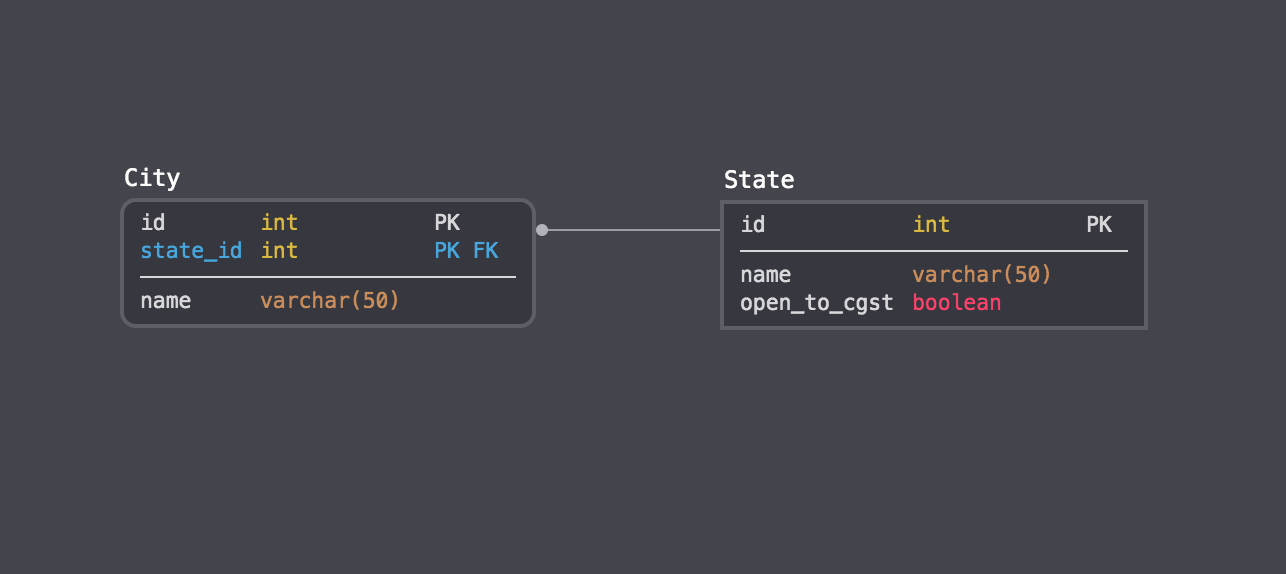Recently I was calling create method on an active-record model object. But it failed in validation, because the provided foreign_key_id was not present in the associated table.
My first guess was it might be a dangling reference.
But I was wrong. There was a record with this foreign_key_id in its table. So what went wrong? It was a problem with
default scope defined on an associated model.
Let’s first understand how scopes work in Rails. When we define a scope on an ActiveRecord model
class Vehicle < ActiveRecord::Base
scope :red, -> { where(color: 'red') }
end
a class method is added to the Model. It is simply like this
class Vehicle < ActiveRecord::Base
def self.red
where(color:'red')
end
end
That means instead of querying Vehicle.where(color:'red'), we would be simply doing
Vehicle.red
The object returned by scope is always an ActiveRecord::Relation not Array. And this is the greatest benefit, because you can call all
the queries on this object just like any other Relation object.
Vehicle.red
Vehicle.red.count
Vehicle.red.where(type: 'Hatchback')
You should always pass a callable object to the scopes defined with #scope. This ensures that the scope is re-evaluated each
time it is called.
.
Default Scope
What if we need to query Vehicle model with some pre-fixed parameters. Suppose requirement is to show vehicles of drive type
‘Gear’ only. We must add the where(drive_type: 'Gear') clause to all the requests. Is there a better way with scopes?
Yes!!
Just by defining default scope we would be able to query the drive_type geared vehicles only. Just like
class Vehicle < ActiveRecord::Base
default_scope {where(drive_type: 'gear')}
end
This will add where(drive_type: 'gear') to all the request we make to Vehicle.
This is just one way to use default scope. You can use default scopes n number of times in a Model. They all will be
club together in the resulting query.
class Vehicle < ActiveRecord::Base
default_scope {where(drive_type: 'gear')}
default_scope {where(color: 'red')}
end
In this way we are able to filter each request on Model with default scope.
..
Unscoped
As much as we need default scope, we may also need to undo it at some places. It means calling a plain query on a Model without
any pre-defined clause/s. It can be just like
Vehicle.unscoped.count
It will result Vehicle.count by removing default clause where(drive_type: 'gear')
…
How associations work with Scopes
Scopes have effect on associated classes. The default scope will take effect when a parent class makes query to the associated class. Just like
class Klass < ActiveRecord::Base
has_many :vehicles
end
class Vehicle < ActiveRecord::Base
belongs_to :klass
default_scope {where(drive_type: 'gear')}
end
When a query is made from klass object to vehicles, the default scope drive_type: 'gear' will be auto considered.
….
Extended Scopes
Scopes can be extended to have methods defined within themselves. Suppose
class Vehicle < ActiveRecord::Base
scope :geared, -> {where(drive_type: 'gear')} do
def count
count
end
def pluck_ids
pluck(:id)
end
end
Calling Vehicle.geared.count would be equivalent to Vehicle.where(drive_type: 'gear').count and likewise for pluck_ids.
…
Why not class methods?
From all the discussion about scopes, you might think why not use class methods instead? And yes it is absolutely fine to choose class methods over scopes. The only problem I see for now is the difference between how we handle the chain-ability of relations.
For instance, consider
#Scopes
class Vehicle < ActiveRecord::Base
scope :color, -> color { where(color: color) }
scope :gear, -> { where(drive_type: 'gear') }
end
#Class method
class Vehicle < ActiveRecord::Base
def self.color(color)
where(color: color)
end
def self.gear
where(drive_type: 'gear')
end
end
When we call Vehicle.color('red').gear, it would absolutely work. But for Vehicle.color('').gear we won’t get any result,
because the argument passed to color is blank. And it won’t be a desired output. If argument is nil or blank we would want to get
all result instead. And will do this like
#Scopes
class Vehicle < ActiveRecord::Base
scope :color, -> color { where(color: color) if color.present? }
end
#Class method
class Vehicle < ActiveRecord::Base
def self.color(color)
if color.present?
where(color: color)
else
all
end
end
end
It is upto you what to choose. But I think we should consider what framework has to offer before re-inventing the wheel.
…
Edge case
Let’s assume data for more clear picture

state_id is present in every cities record. And State model has a default scope on column_1 as where(column_1: 1).
class State < ActiveRecord::Base
scope :one, -> { where(column_1: 1) }
has_many :cities
end
class City < ActiveRecord::Base
belongs_to :state
end
To insert {name:'New York', state_id: 1} into cities, record with id 1 must exist in states table. But what if states id
1 has column_1 set to 2 or any value other than 1. Will the default scope neglect them? Absolutely Yes!!
The insertion query will fail with error message ActiveRecord::RecordInvalid: Validation failed: State must exist.
Then, what is the solution?
class State < ActiveRecord::Base
scope :one, -> { where(column_1: 1) }
has_many :cities
end
class City < ActiveRecord::Base
belongs_to :state, ->{where(column_1: [1, 2, 3])}
end
Defining allowed column_1 values in the association itself will do the trick.
Cheers!!!
 Swapnil Gourshete
Swapnil Gourshete 
 String Comparison: StringInquirer
String Comparison: StringInquirer